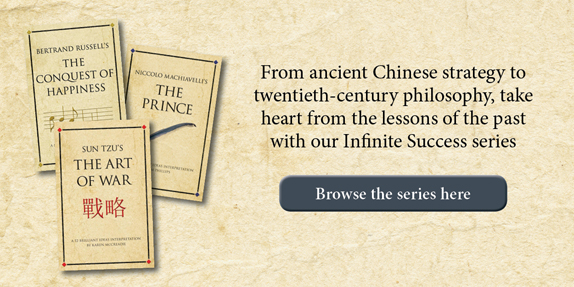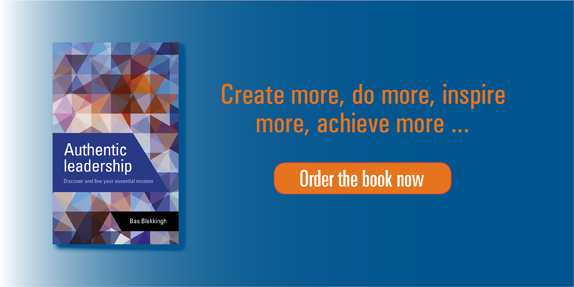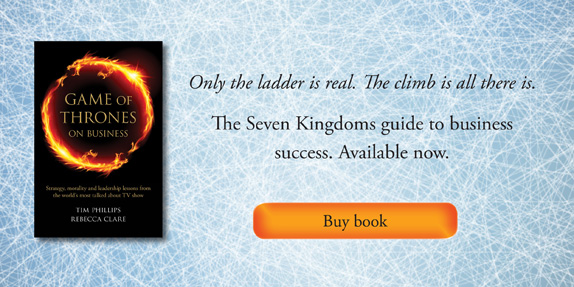Business and finance
Presenting your authentic self to the world
4 March 2015 by Catherine Holdsworth in Authentic leadership, Business and finance
Little did Indhuja Pillai realise a few months ago that her dating profile would go viral. Here’s some background context for those who are unfamiliar with this story. Having grown up in India, Pillai’s parents wanted to arrange a marriage for her and set up a profile for their daughter on a specialist site. However, Indhuja was not impressed with their representation of her, for example, they did not mention that she was a tomboy, an atheist, and her lack of desire to have children. This led to her creating her own profile, declaring that she was looking for a man, ‘preferably bearded’ and extra points if he hates children.
 Shockingly, this post got thousands of responses from potential suitors as well as messages from those who are thrilled that Pillai is standing up for herself and presenting her authentic character to the world. In Bas Blekkingh’s book, Authentic leadership, readers are encouraged not to hide behind lies and personalities but to be true to themselves in order to succeed in business and areas beyond.
Shockingly, this post got thousands of responses from potential suitors as well as messages from those who are thrilled that Pillai is standing up for herself and presenting her authentic character to the world. In Bas Blekkingh’s book, Authentic leadership, readers are encouraged not to hide behind lies and personalities but to be true to themselves in order to succeed in business and areas beyond.
If you’re familiar with online dating, you’ll know how hard it is to navigate the tricky terrain of how much to reveal about yourself, which photos to choose, what to say to your potential matches. How refreshing, then, to see someone be truly honest about what they want. We all know someone who has been on an online date and the person turns out not to be anything like who they were online. Such are the dangers of being inauthentic.
It is clear that Pillai does not need to heed Blekkingh’s advice as she is already blazing her own trail. Though her actions were clearly not conventional and a little risky, the risk paid off. We can all learn a little about the value of being true to ourselves from this. By being authentic and genuine, people are more likely to trust you and open up to you, helping you to succeed in whatever you want. We all know that one person who is a compulsive liar or name-dropper but are they the ones we want to invite to our birthday parties? Not likely. Find the best version of yourself and show that to the world. If you don’t love yourself, nobody else will.
An authentic mission will ensure that you succeed and achieve your goals, according to Blekkingh, and we think so too.
FREE ebook: 10 Management Models
27 February 2015 by Catherine Holdsworth in 100+ Management Models, Business and finance
We have exciting news. You may have heard of our book, 100+ Management Models, but did you know that you can download a free taster from Kindle? Our new free ebook, 10 Management Models gives the reader a taste of what the main book is all about. Not sure whether you can benefit from the models? Give the free book a try and see if it influences your business.
Fons Trompenaars and Piet Hein Coebergh are renowned business leaders and have compiled the most comprehensive list of management models to help you improve your management and leadership style.
The book, released in September, has been well received by business managers and lecturers alike and was a Times book of the week in January.
Download the free taster ebook from Amazon or click the image below to buy 100+ Management Models.
David Cameron dreams of the Iron Throne
20 February 2015 by Catherine Holdsworth in Business and finance, Game of Thrones on Business
The UK is gearing up for a big election in the next few months. Nick Clegg’s been locked up somewhere in the hope the electorate forgets about him, Labour has launched its ‘pink bus of feminism’ and Nigel Farage is trying not to look like a complete tool in the run up to voting day (not that that seems to matter to the UKIP faithful).
 Political rivalries are not new; they have gone on for thousands of years and come hand in hand with deception, backstabbing (remember the Ides of March?) and defamation of character. And you thought Game of Thrones was gory. David Cameron’s ‘hospitality bill’ has just been released and shows that he spent nearly £2,000 of tax payers’ money on entertaining guests like the Queen and, less justifiably, Claudia Schiffer. Perhaps Cameron is as much a fan of Game of Thrones as the rest of us (it would certainly show him being ‘in touch’ with his people) and enjoys flamboyant gestures and indulgent dinner parties much like the characters do.
Political rivalries are not new; they have gone on for thousands of years and come hand in hand with deception, backstabbing (remember the Ides of March?) and defamation of character. And you thought Game of Thrones was gory. David Cameron’s ‘hospitality bill’ has just been released and shows that he spent nearly £2,000 of tax payers’ money on entertaining guests like the Queen and, less justifiably, Claudia Schiffer. Perhaps Cameron is as much a fan of Game of Thrones as the rest of us (it would certainly show him being ‘in touch’ with his people) and enjoys flamboyant gestures and indulgent dinner parties much like the characters do.
Some may comment that, given some people pay up to £30,000 for their own wedding, red or otherwise, £2,000 for a whole year entertaining royalty and 1990s supermodels is actually a bargain. However, this bill is only for his private retreat, Chequers. Who knows how much more he has spent in Number 10! Surely the Queen is so used to lavish parties that she might prefer some humble fish and chips on her holiday?
The Tories, to many people of the UK, are the Lannisters of government: overprivileged toffs who take it for granted that they should be in charge of the country (so does that make Nick Clegg and Ed Miliband Stannis Baratheon and Daenerys Targaryen?). Only time will tell whether Dave will be elected for a second term and it is probable that he may have to settle for another coalition. However, with the economy still at functioning at a less than optimal level, and national cuts being made left right and centre, perhaps Cameron could focus more on how to help the country rather than fuelling the perception that he is an entitled, public school-educated posh boy who has no interest in the working and middle classes.
Certainly Cameron, in contrast to King Joffrey, has (to our knowledge) not ordered any decapitations during his time in office, but many voters who could sway the upcoming election need to be convinced that Cameron is interested in more than keeping rich people rich (and poor people poor). We would suggest that Cameron read our upcoming book, Game of Thrones on Business, which is full of tips and advice on how to recognise the signs that your Lannister side is overcoming your Stark good intentions and rectify it before you get shot in the privy.
Would you get sent to Mars?
18 February 2015 by Catherine Holdsworth in Business and finance, Current events
We’ve all had jobs we’d rather forget, whether it be working in a rowdy bar cleaning up vomit from the toilets or spending your days in a call centre and getting abuse thrown at you for your whole shift. But these are run-of-the-mill jobs (for most of us) that we have to do so that we can climb the ladder of success to reach the goal of being happy in our careers.
But what is the oddest job? This week, NASA revealed the top ten finalists for their Mars One mission. These will be the first people to live on another planet, permanently. No more chocolate bars, binge watching of Keeping up with the Kardashians or relaxing walks on the beach for these people. They are all on a one-way mission to become Martians and will leave our planet forever. The very idea of this mission has sent the Infinite Ideas office into a panic. We really don’t want to go to Mars, thank you very much, it’s hard enough to psych ourselves to go to London when needs must! Therefore, people that really want to do this are most likely slightly odd themselves and planet Earth will probably not miss them very much. Goodbye and thank you Martians!
However, after the scare of being sent to Mars, we found an equally odd job that might seem really fun. The position of Antarctic postmaster has become available and we think it would be just lovely to spend a few months ‘down south’ playing with penguins and making snow men. Sure, apparently the penguins smell a bit, but so will you if you live in the Antarctic (with no shower for a month, apparently) so you probably will come to really love the smell of ‘eau de penguin’. Though it might be lonely, you can take lots of books with you and, working in the post office, you can get lots of care packages of Dairy Milk and PG Tips sent from your mum. It’s probably very safe as we assume the crime rate in Antarctica is very low (excuse the pun) and there are no polar bears as they are northern dwellers (much like Jon Snow).
So if any of these rather silly jobs appeal to you, we can help you out. Though we will not be joining you on your mission to Mars, we will give you lots of business tips on how to make sure you secure your dream job. Surely the Mars trip will need a leader (though we fear some sort of Lord of the Flies scenario will ensue) and so to help them out, our book, 100+ Management Models by Fons Trompenaars and Piet Hein Coebergh is an excellent resource for an efficient leader. We will be with you in spirit, Mars One.
Football: tax the expensive players to get more suspense
7 January 2015 by Catherine Holdsworth in Business and finance, Current events, Football Business
(Translation of an article that appeared in the Dutch newspaper De Volkskrant.)
Introduce a levy on players and football is fun again.
Football is getting less exciting. In many leagues and tournaments competitive balance is decreasing. For instance, only few clubs still have a chance to win the Champions League, and Ajax is no longer among them. In addition, the status and therefore the attractiveness of the leagues of small countries is waning in the long run because of the outflow of talent, and this also holds for the Dutch Eredivisie. Of course, a boy from Amsterdam can support of Barcelona so that he can see the club of his dreams win the important Spanish title, or the Champions League. But he sacrifices his chance to see his club win in a football stadium. Barcelona is far away, and CampNou has only 99,000 seats. The boy will cheer before the television, possibly alone because his friend next door is an Arsenal fan.
In the meantime tickets are getting more expensive, and viewers now pay to watch matches that used to be free. In the Netherlands, things are not like this yet. However, the cheapest season ticket for Arsenal is a staggering €1250. Football is getting less accessible for the average fan.
How do our politicians react to this? They let it go. If the Dutch government takes a measure which significantly harms big firms – such as a high old-fashioned tax on profits – many firms will move abroad.
But football is different. The biggest clubs are all located within the European Union. And it will remain that way. Arsenal cannot move to New York, because it will lose almost all its fan. And therefore the European Union has, in principle, power over the clubs.
It should use that power now. I propose a progressive social levy. This means that a club like Arsenal should spend one euro on special projects for every euro it spends on players’ salaries. For example, projects to reduce the rate of school dropouts, or to support non-professional clubs. The downside to this is that the levy will force Arsenal to spend less on players, which will weaken its squad.
Feyenoord Rotterdam adopts this sort of business model: for every euro the club pays out on player salaries, it has to spend 20 cents on social projects. For a small Dutch club like Cambuur the figure is five cents, so that Cambuur can pay its players almost the same salaries as before. So, Cambuur stands a better chance against Feyenoord, and Feyenoord can score more goals against Arsenal. This is also an advantage because Feyenoord’s monumental stadium, De Kuip, has a much better atmosphere than Arsenal’s expensive Emirates Stadium, making victory for the fans even sweeter.
But can the football sector really afford to divert large sums of money to social projects? The answer is simply, yes, it can. The average club in the English Premier League, for instance, now earns 53 times as much as the average club in the English top division of 1960 (after adjusting profits for inflation). Elsewhere in Europe, football has also seen remarkable growth. The exploding revenues have mainly been used to pay players higher salaries. Now, because the levy is directly based on the players’ payroll, the players will earn less so that no club needs to go bankrupt. Because the levy is highest for the largest clubs, it is the top players like Steven Gerrard and Wayne Rooney that will feel the effect of this business model most harshly. But they can still become millionaires.
What we need is to restore balance to the competition and not restrict victories to whichever club has the most money to spend on players. At the same time, more money will be available for social projects. Too idealistic? From an economic view certainly not.
But is the proposal politically feasible? We are talking about a policy that harms vested interests and that can only be successful after a hard political battle which can take many years. So the question is whether there are politicians who want to fight for the fans. Or will politicians rather prefer to let the football fans walk alone? One thing is certain: the extent to which football remains attractive will depend on politicians.
Tsjalle van der Burg is economist and author of the book Football Business: how markets are breaking the beautiful game
FREE EBOOKS to celebrate knowvember
7 November 2014 by Catherine Holdsworth in Book publishing, Business and finance
You’ve probably heard about Movember but Infinite Ideas would like to introduce you to know-vember, the month of knowledge. To celebrate this and the fifth anniversary of our Infinite Success series, we have come over all generous and decided to make the entire Infinite Success series free for Kindle for the entire month.
The Infinite Success series is a collection of contemporary interpretations of the world’s best-known, life-changing business and self-help classics, including Sun Tzu’s The Art of War, Machiavelli’s The Prince and Napoleon Hill’s Think and Grow Rich. The original is taken apart to find the most transforming ideas and the timeless nature of the authors’ insights is brought to life with twenty-first century examples, case studies, lifestyle observation and consumer behaviour and new scientific discoveries. Crucially, all the ideas are short and to the point. The series has been translated into more than twenty languages and has enhanced hundreds of thousands of lives around the globe.
Why not treat yourself now and impress your friends and colleagues with the knowledge gained from our fantastic series. Perhaps you can dazzle them with your ability to apply ancient war strategies to your small business start-up, or impress them with your new-found money-making skills.
How you use this series is up to you. So enjoy. This is for the 50% of the population that can’t grow a moustache, and for the men who would prefer not to. Imbibe knowledge, it’s great!





